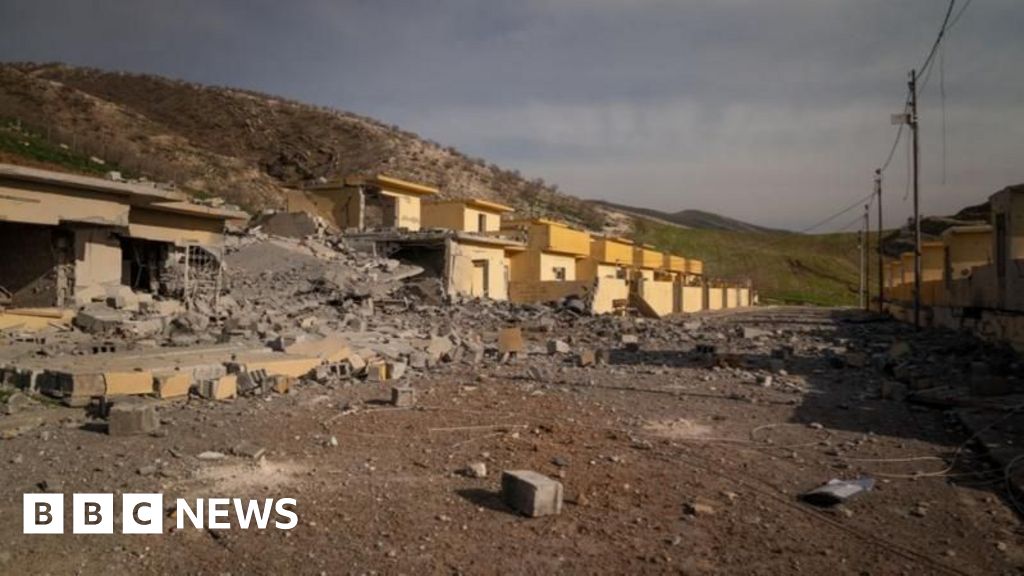- Fred Daniel faced violence and threats, orchestrated by the Mpumalanga government and high-ranking politician David Mabuza, to force him off his purchased land.
- The Gauteng High Court ordered the Mpumalanga agencies to pay Daniel over R306 million in damages and interest.
- Judge Neil Tuchten found a land claims racket involving state organs, police, and politicians, aiming to block Daniel’s legal game reserve development.
In a landmark judgment exposing high-level corruption and political collusion, the Gauteng High Court in Pretoria ordered Mpumalanga’s Tourism and Parks Agency (MTPA) and Regional Land Claims Commissioner (RLCC) to pay Fred Daniel more than R306 million.
Daniel wanted to establish a conservation area in Mpumalanga in the late 1990s, which he would call the Cradle of Life Nkomazi Wilderness. This area would act as a game reserve with high-end tourism facilities. To this end, Daniel, through his company Grand Valley Estates, started purchasing land.
However, the project would not come to fruition as it was stonewalled by a land claims racket, coupled with violence and threats – all orchestrated by the Mpumalanga government with the apparent backing of the late high-ranking politician David Mabuza to force Daniel off the properties. His investors included Kerzner International.
During this time frame, Mabuza held several positions in the Mpumalanga provisional government before ascending to the position of premier of the province in 2009.
Nearly 15 years ago, Daniel instituted a civil action, suing Mpumalanga’s tourism agency and land claims commission for damages in the region of R1.4 billion.
READ | David Mabuza implicated as court awards Fred Daniel R306 million in land claims battle
Returning from retirement to adjudicate the case, Judge Neil Tuchten handed down a scathing judgment on Tuesday.
In it, he effectively found that the Mpumalanga land claims commission – an organ of the state – was the vehicle for the racket and that the South African Police Service and at least two politicians, including Mabuza, banded together to force Daniel out.
In his judgment, Tuchten honed in on what he called a land claims racket and the violence and threats metered out on Daniel.
A racket and threats
The violence and threats were preceded by a 2004 meeting Daniel had with Pieter Visagé, a broker for the land claims commission.
Visagé supposedly offered to buy the land from Daniel at three times the valuation that Daniel could produce.
“Visagé warned Mr Daniel that if he did not sell, land claims would be gazetted over the project lands and Mr Daniel would then be forced to sell,” the judgment read.
It is alleged that Visagé would buy the land at an inflated price and then sell the options to the land claims authorities for even more.
Daniel refused the offer. Daniel’s endeavours had hit some snags before this meeting, but the onslaught against him took form afterwards.
Tuchten said:
Firstly, there is the evidence of Visagé’s interaction with Mr Daniel, in which Mr Visagé actually invited Mr Daniel to participate in the racket. Secondly, there is the evidence of the violence visited upon Mr Daniel and his property when Mr Daniel refused to participate in the racket.
“This violence was directed at persuading Mr Daniel to sell to the RLCC and, when that did not succeed, persuading him to leave the district.”
In 2005, a group of people were bused in and assembled at Daniel’s property. Rioting took place, with burning tyres. Daniel’s employees were allegedly assaulted, and he was threatened.
Daniel tried to get the police to curb the violence.
In 2008, another riot occurred after around 100 people were bused in from Middelburg. They said they were coming to arrest Daniel and demanded that he leave and give up the land.
A warrant officer told the court that police had been instructed to stay away from the demonstration, which might turn violent.
“The local commander said that he had been told that the demonstration would be political,” Tuchten said, reciting the warrant officer’s evidence.
Mabuza arrived at the protest and told the angry crowd that his office was handling the land claims that had been lodged.

The late David Mabuza held several positions in the Mpumalanga provisional government before ascending to the position of premier of the province in 2009.
Mlungisi Louw/Volksblad/Gallo Images via Getty Images
Thereafter, Daniel testified that there were sporadic incidents of violence, arson and fence cutting perpetrated against his conservation project and staff until the middle of 2009. Daniel said multiple Mpumalanga government departments also harassed him.
Later in August 2008, Daniel said he had a telephonic conversation with Mabuza, who told him to sell the land to the Ndwandwa Trust – which was the only way Mabuza could protect Daniel.
READ | R30 million land expropriated for R0: ‘The poor need houses,’ says Ekurhuleni
Tuchten accepted the evidence that police were ordered not to perform their duties in relation to the violence inflicted on Daniel and his properties.
“This instruction could only have emanated from a highly placed politician or politicians. When the violence of that day was at its height, it was Mr Mabuza who came to address the mob and tell them to disperse.”
Tuchten said Mabuza’s utterances that he could only protect Daniel if he sold the land to the land claims commission was not language becoming of a reputable politician.
“Shorn of its protective camouflage, the circumlocution was intended to show Mr Daniel that Mr Mabuza was able to withhold from Mr Daniel the protection of the SAPS, the instrument of state power provided by the Constitution for just such invasions of his rights.”
“Mr Mabuza had already showed that he could bring down the power of the mob to thwart Mr Daniel in his perfectly lawful vision to develop a game reserve in the Badplaas area.”
Tuchten added: “It is in my judgment, no coincidence that Mr Mabuza advised Mr Daniel to sell the project lands to the Ndwandwe Trust, one of the instruments chosen by Visagé for the execution of the land claims racket.
“I therefore hold that a land claims racket was in progress when Mr Daniel refused to participate in the racket. I hold further that the purpose of the violence was to force Mr Daniel off his land by threats of violence to him and his property and that the RLCC, the organ of state vehicle of the land claims racket, the SA police and at least two politicians, Pro Khoza, and Mr Mabuza, both said to have been members of the 25th defendant, the GBLCC (Greater Badplaas Land Claims Committee), banded together with the common purpose of forcing Mr Daniel from the project lands.”
Abuse of power
Daniel’s plans for a conservation reserve were also hampered by his inability to obtain permits for big game animals, including lions, leopards, and elephants. He had to get these permits from the MTPA.
The court could not find that the permit applications were corruptly withheld.
Daniel also ran a rehabilitation facility, which was subjected to a search-and-seizure raid in 2007, which led to a criminal case on charges including keeping wild animals for commercial purposes without authorisation and establishing a game park without a permit.
While attending a court appearance in 2008, Daniel was informed that a raid was being carried out in which certain animals were seized, loaded on trucks, and transported away. The animals taken included cheetahs, wild dogs, and leopards.
One of the leopards was shot and killed, while others died from the trauma of their dislocation.
Tuchten said there was no legal justification for either of the raids.
“Why did the officials of the MTPA behave as they did in carrying out the raid and the disruption to the lives of the animals in question?
“Could it be that Mr Daniel, and the animals, were merely the victims of bumbling, overbearing, incompetent officials? Had the events of 18 June 2008 not taken place, I might have found that this was the case in relation to the initial seizure and the prosecution itself. But the cruelty of the removal, unjustified on any conceivable legal or moral basis, demonstrates that something much worse was at play.”
Tuchten said:
There can really only be one explanation: they wanted to oppress and harass Mr Daniel, show him that he was powerless to resist them or interfere in the way they ran things, particularly in relation to problem animals, and ultimately drive him from the project.
The court concluded that officials from MTPA who abetted or acquiesced in the raid acted with two motives.
“Those officials in contact with and subject to the influence of the politicians in power in the province wanted to get rid of Mr Daniel because he was, or had been, a threat to the way things were done in the province, particularly in relation to the efforts made to transfer farms in the Badplaas district to the land claims commission and the illicit profits generated from such transfers.”
“Officials within the Wildlife Protection Service of the MTPA wanted to get rid of Mr Daniel because their superiors wanted it so.”
The raid of 18 June 2008 was designed to show Mr Daniel that in Badplaas, the officials and the members of the SA Police who assisted them were not merely officers of the law: they were the law; they decided what the law said and they decided who would fall foul of the law.
Tuchten found that Daniel had proven there was a collusive agreement, and that the MTPA, the RLLC, and the Mpumalanga government, as a whole, were parties to it.
The court ordered that the Mpumalanga Tourism and Parks Agency and the Regional Land Claims Commissioner pay Daniel’s company, Grand Valley Estates, a total of R306 109 240, as well as interest backdated to November 2024 at the rate of 11.5% per annum. The court also awarded costs to Daniel.
By 2019, Daniel had sold all the land, believing his life would still be in danger if he continued with the project.
 (1).png)
 5 months ago
22
5 months ago
22

















